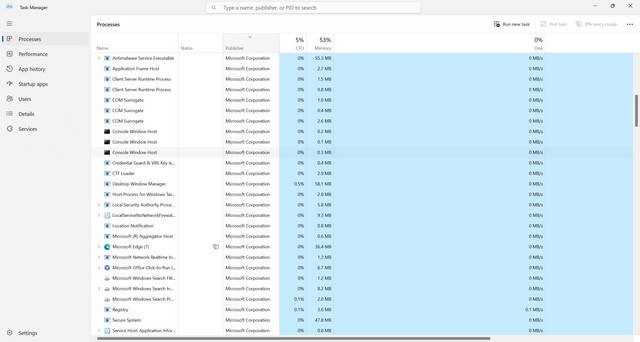When you open the Windows Task Manager, you may come across a process called avgidsagent.exe running in the background. This article aims to provide you with a detailed understanding of what avgidsagent.exe is, whether you should remove it, and whether it is malware or not.

What is avgidsagent.exe?
Avgidsagent.exe is an executable file associated with AVG Antivirus software. AVG Antivirus is a popular antivirus program that provides protection against various types of malware, including viruses, spyware, ransomware, and more. The avgidsagent.exe process is a part of AVG’s Identity Protection component, which helps safeguard your personal information and prevent identity theft.
The avgidsagent.exe process is responsible for monitoring your system for any suspicious activities that may indicate a potential security threat. It continuously scans files, processes, and network connections to detect and block any malicious behavior. This proactive approach helps ensure that your computer remains protected from the latest threats.
Should I remove avgidsagent.exe?
No, you should not remove avgidsagent.exe from your system. It is a legitimate process associated with AVG Antivirus, and removing it may leave your computer vulnerable to malware attacks. AVG Antivirus relies on avgidsagent.exe to provide real-time protection and detect any potential threats.
If you are experiencing any issues with avgidsagent.exe, such as high CPU usage or system slowdowns, it is recommended to update your AVG Antivirus software to the latest version. Outdated versions of antivirus software may sometimes cause performance issues. Updating to the latest version can often resolve these problems.
If the issues persist even after updating, you can try reinstalling AVG Antivirus. Uninstall the existing version from your system and then download and install the latest version from the official AVG website. This process may help resolve any conflicts or errors related to avgidsagent.exe.
Is avgidsagent.exe malware?
No, avgidsagent.exe is not malware. It is a legitimate process associated with AVG Antivirus. However, it is worth noting that malware authors sometimes use similar names to disguise their malicious processes. Therefore, it is essential to ensure that the avgidsagent.exe process running on your system is located in the correct folder and is digitally signed by AVG Technologies.
To verify the authenticity of avgidsagent.exe, follow these steps:
- Open the Windows Task Manager by pressing Ctrl + Shift + Esc or right-clicking on the taskbar and selecting Task Manager.
- Switch to the Processes tab.
- Locate and right-click on avgidsagent.exe.
- Select Open File Location.
- Check the file location. The legitimate avgidsagent.exe file should be located in the C:Program FilesAVGAntivirus folder or a similar location associated with AVG Antivirus.
- Right-click on the avgidsagent.exe file and select Properties.
- Switch to the Digital Signatures tab.
- Verify that the digital signature is from AVG Technologies.
If you find any discrepancies or suspect that the avgidsagent.exe process on your system is malware, it is recommended to run a thorough antivirus scan using a reliable antivirus program. We recommend using Malwarebytes Free, a trusted antivirus software known for its effectiveness in detecting and removing malware.
Summary
Avgidsagent.exe is a legitimate process associated with AVG Antivirus. It is responsible for providing real-time protection and monitoring your system for potential security threats. Removing avgidsagent.exe may leave your computer vulnerable to malware attacks, so it is recommended to keep it installed.
If you experience any issues with avgidsagent.exe, try updating your AVG Antivirus software to the latest version or reinstalling it. Ensure that the avgidsagent.exe process on your system is located in the correct folder and is digitally signed by AVG Technologies to verify its authenticity.
If you suspect malware or want to ensure the security of your system, run a thorough antivirus scan using a reliable antivirus program like Malwarebytes Free. It will help detect and remove any potential threats.
By understanding what avgidsagent.exe is and its role in AVG Antivirus, you can make informed decisions regarding its presence on your system and ensure the security of your computer.


![Remove Ansible Algorithm Search [Virus Removal Guide] 5 ProtectedSearch Search Virus](https://malwaretips.com/blogs/wp-content/uploads/2018/12/ProtectedSearch-Search-290x190.jpg)

![Remove Zyhv-defender.pro Pop-up Ads [Virus Removal Guide] 9 McAfee scam 4](https://malwaretips.com/blogs/wp-content/uploads/2023/08/McAfee-scam-4-290x290.jpg)